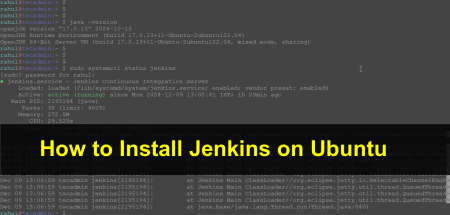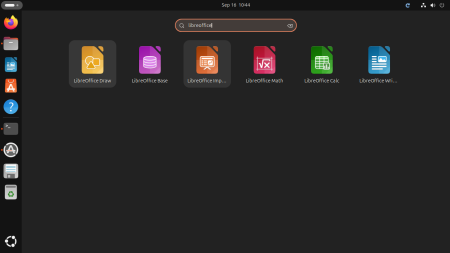LShell or Limited Shell is written in python for limiting user for specific set of commands and directories. You can create user environment with limited access, you can also enable disable commands over SSH access.
Install Limited Shell
Use the following command to install LShell package on your Debian based system. For other operating system, You need to Google for package of lshell for your distribution.
$ sudo apt-get install lshell
Switch User to LShell
Now set the LShell as default shell for users for which you are required. For example to change the shell of user sarah.
$sudo chsh sarah Changing the login shell for sarah Enter the new value, or press ENTER for the default Login Shell [/bin/lshell]:/usr/bin/lshell
You may also set the lshell as default shell for user during creation of user account as following.
$ sudo adduser --shell /usr/bin/lshell raj
Configure LShell
Now start with the configuration of lshell. Edit lshell configuration file /etc/lshell.conf. There are 4 basic sections in configuration file.
[global] : In this section we defines the settings which applied globally. For example logs.[default] : In this section we set default values which applied all users and groups. The settings of this section can be overridden with user and group specific settings.[USERNAME] : In this section we specify user specific settings. This section settings applied to user only[grp:GROUPNAME] : In this section we specify group specific settings. This section settings applied to all users of group
A [default] profile is applied for all users using lshell. You can create [username] section or a group [grp:groupname] section to customize users and group specific preferences.
The priority order is User >> Group >> Default. User section has highest priority and Default has lowest priority.
[global] logpath : /var/log/lshell/ loglevel : 2[default] allowed : ['ls','pwd','cd','cat','cp'] forbidden : [';', '&', '|','`','>','<', '$(', '${'] sudo_commands : ['ls', 'more'] warning_counter : 2 aliases : {'ll':'ls -l', 'vim':'rvim'} prompt : "%u@%h" timer : 0 path : ['/home', '/usr'] env_path : ':/usr/bin/usr/local/bin' env_vars : {'foo':1, 'bar':'helloworld'} scp : 1 # or 0 sftp : 1 # or 0 overssh : ['rsync','ls'] strict : 0 history_file : "/home/%u/.lshell_history"[grp:wheel] warning_counter : 5 overssh : - ['ls'][raj] allowed : 'all' - ['su','rm','mv'] path : ['/etc', '/usr'] - ['/usr/local'] home_path : '/home/raj'[sarah] allowed : + ['ping'] - ['ls'] path : - ['/usr/local'] strict : 1 scpforce : '/home/sarah/uploads/'
For example User ‘rja’ and user ‘sarah’ both belong to the ‘wheel’ UNIX group:
Group wheel:
- Users of wheel group has a warning counter set to 5
- Users of wheel group is not allowed ‘ls’ command.
User raj:
- Can access /etc and /var but not /usr/local
- Can access all commands in his PATH execpt commands – su, rm, vm
- has a warning counter set to 5 [default]
- has his home path set to ‘/home/raj’
User sarah:
- Can access /home and /usr but not /usr/local
- is allowed default command ‘ping’ but not ‘ls’
- strictness is set to 1 (he is not allowed to type an unknown command)
| Option name | Explanation |
|---|---|
| log directory (default /var/log/lshell/ ) | |
| set log level to 0, 1, 2, 3 or 4 (0: no logs, 1: least verbose, 4: log all commands) | |
| configure log file name (default is %u i.e. username.log) | |
| list of the allowed commands or ‘all’ to allow all commands in user’s PATH | |
| a list of forbidden character or commands — deny vim, as it allows to escape lshell | |
| a list of allowed command to use with sudo(8) | |
| number of warnings when user enters a forbidden value before getting exited from lshell, set to -1 to disable. | |
| command aliases list (similar to bash’s alias directive) | |
| introduction text to print (when entering lshell) | |
| configure your promt using %u or %h (default: username) | |
| set sort prompt current directory update (default: 0) | |
| a value in seconds for the session timer | |
| list of path to restrict the user “geographicaly” | |
| set the home folder of your user | |
| set the environment variable $PATH of the user | |
| a list of path; all executable files inside these path will be allowed | |
| add environment variables | |
| allow or forbid the use of scp (set to 1 or 0) | |
| forbid scp upload | |
| forbid scp download | |
| allow of forbid the use of sftp (set to 1 or 0) | |
| list of command allowed to execute over ssh | |
| logging strictness. 1 for any unknown command is considered as forbidden and 0 as unknown | |
| force files sent through scp to a specific directory | |
| history file maximum size | |
| set history file name (default is /home/%u/.lhistory) | |
| define the script to run at user login |




3 Comments
Thank you
I have debian 9 and apt-get install lshell return a package not found. What is the other option to install lshell?
Thanks for this article! How to change the default shell of a group?
chsh groupname doesn’t work.